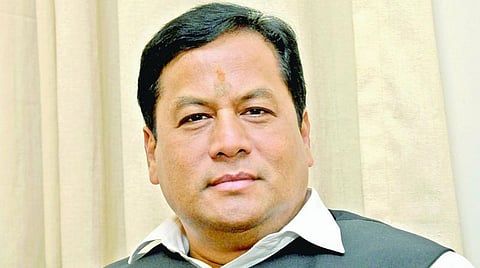
- Home
- Live Blog
- Breaking News
- Top Headlines
- Cities
- NE News
- Sentinel Media
- Sports
- Education
- Jobs

Assam Chief Minister Sarbananda Sonowal is absolutely right when he said that the indigenous communities of the state have to be protected. In fact it was he who coined the ‘jaati-mati-bheti’ slogan during the run-up to the 2016 Assam Legislative Assembly election, one slogan that singularly contributed towards the overwhelming victory of the BJP-AGP-BPF alliance. Sonowal, while speaking at the 59th annual conference of the Bodo Sahitya Sabha at Khoirabari near Udalguri on Thursday stated that when a race decides to preserve its identity with determination then only it can succeed. He lauded the Bodo community for their great sense of discipline and unity and described it as a living example of how a community, when it joins hand in hand, can overcome all obstacles in their march towards growth and development. The Bodo community, which is one of the worst sufferers because of unabated illegal infiltration from erstwhile East Pakistan and present-day Bangladesh, has been almost reduced to a minority on their own land in many pockets of the four districts that are under the BTAD. Taking a close look at the electoral rolls of the Assembly segments in Kokrajhar and Chirang districts particularly, one will find that in several of them the illegal migrants and their progenies are already in majority. Had these assembly constituencies not been categorized as reserved for the Scheduled Tribes communities, the illegal migrants and their progenies would have ensured the defeat of the Bodo people and sent Bangladeshis or their children to the Assam Legislative Assembly. This has been already proven true in many constituencies of the present-day districts of Dhubri, Bongaigaon, South Salmara-Mankachar, Goalpara and Barpeta districts. One must hold the successive governments of Assam, majority of which were of the Congress, for the dangerous demographic change that has taken place in these districts. No former chief minister of Assam, barring Lokapriya Gopinath Bardoloi can absolve themselves from the sin they had all committed by letting lakhs of people from erstwhile East Pakistan and present-day Bangladesh to come in, occupy land in tribal belts and blocks, reserved forests and wildlife sanctuaries, and PGRs and VGRs. It was during then chief minister Sarat Chandra Sinha’s six-year tenure that no practical steps were taken to ensure that the lakhs of Hindu and Muslim refugees from East Pakistan who had taken refuge in Assam were sent back to their native land after the Indian Army liberated it from Pakistan. A section of government officials – from people holding ranks of Deputy Commissioners to gaonburhas to lat-mandals – were also among the culprits who had facilitated procurement of government documents including land papers by the infiltrators in exchange of a few hundred or few thousand rupees. There is hardly one name of officers belonging to the Assam Civil Service who had picked up the courage to stand up and prevent occupation of government land by the former East Pakistanis and present-day Bangladeshis. There is also no example of any political leader standing up with full honesty, sincerity and patriotism who stood up and raised voice against incidents of systematic land-grabbing by the land-hungry infiltrators. This is true of officers and politicians any indigenous community, irrespective of he or she had Assamese, Bodo, Karbi, Mising, Rabha or Dimasa as mother tongue. Against such a backdrop, Chief Minister Sonowal, who spoke so highly of the Bodo community for its sincerity, hard work, and determination, should first realize that he was now standing in favour of the controversial Citizenship (Amendment) Act and then recall why he had raised the ‘jaati-mati-bheti’ slogan: only for winning elections and then forgetting about it, or for actually showing through actions that he actually spoke from his own heart?